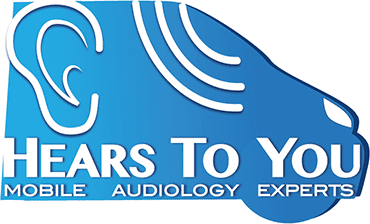The evaluation is done to determine if a hearing loss is present, and if so, to detail the type and severity of the hearing loss. It also may provide insight into the cause of the hearing loss as well as provide guidance for the audiologist in making appropriate treatment recommendations.
What Tests Will Be Done?
The specific tests done during the evaluation will depend on the patient’s age, and what is known already about their hearing status. These various tests will determine the degree of hearing loss, the type of hearing loss, and the conditions of the ear canal and middle ear. The audiologist will also determine if the hearing loss is conductive (middle or outer ear problem) or sensorineural (inner ear problem or central processing difficulty of the brain).
A diagnostic audiologic evaluation includes pure-tone testing, bone-conduction testing, and speech testing.
Pure-tone Air and Bone Conduction Testing
Pure-tone air conduction testing determines the quietest tones that a person can hear at different frequencies, both low and high. Bone conduction testing is similar to pure-tone air conduction testing. A different type of headphone is used during bone conduction testing, and the results help the specialist determine if the hearing loss is originating from the outer/middle ear or from the inner ear.
Additional Tests:
Word Clarity or Word recognition testing helps determine how clearly you can understand speech once the volume levels are adjusted to compensate for the level of hearing loss. This test then helps the Audiologist determine what type of hearing technology or assistive technology would be best for you.
What Can I Expect During a Diagnostic Audiologic Evaluation?
The evaluation will probably last about 30 to 40 minutes in length. You should also allow for time for discussion with the audiologist to review test results, and ask questions.
If the determination is made that you need hearing aids, allow for sufficient time to discuss your options.
It is recommended that you have a family member with you to the evaluation appointment. Most audiologists agree that hearing loss is a family issue. It helps to have another supportive person at the appointment to help you understand the information and recommendations.
Before your appointment, a complete medical history will be completed and the audiologist will want to hear about any complaints you have about your hearing. He or she will pay special attention to any concerns you have about exposure to noise, tinnitus, and balance problems. Make sure that you take a full list of any medications and supplements you are taking with you to your appointment.
The diagnostic audiologic evaluation is a good chance to establish a relationship with your audiologist. It helps to ask around for recommendations to audiologists in your area and find someone who listens carefully to your concerns. Above all, don’t be afraid to ask questions. You will want to be clear on any information you receive so that you can be an active participant in finding hearing solutions that work best for you and your lifestyle.
